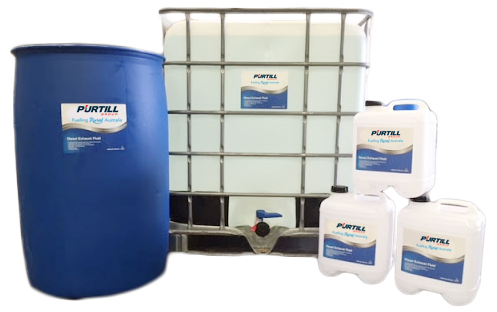AdBlue
 AdBlue is a diesel exhaust fluid that ensures optimal performance and reliability of your Selective Catalytic Reduction (SCR) system. It’s a quality guarantee you can rely on time after time, fill after fill. Available at the pump or in convenient 10L packs at selected locations. This urea-based technology has been adopted by vehicle manufactures to help meet the latest European requirements on diesel engine emissions. The AdBlue we source is made to ISO quality standards 22241-1, 2, 3 and 4 as well as DIN70070 and CEFIC standards, and is Verband der Automobilindustrie E.V. approved.
AdBlue is a diesel exhaust fluid that ensures optimal performance and reliability of your Selective Catalytic Reduction (SCR) system. It’s a quality guarantee you can rely on time after time, fill after fill. Available at the pump or in convenient 10L packs at selected locations. This urea-based technology has been adopted by vehicle manufactures to help meet the latest European requirements on diesel engine emissions. The AdBlue we source is made to ISO quality standards 22241-1, 2, 3 and 4 as well as DIN70070 and CEFIC standards, and is Verband der Automobilindustrie E.V. approved.
 Adblue is available in a range of pack sizes from 10L to 1000L. Bulk delivery is also available.
Adblue is available in a range of pack sizes from 10L to 1000L. Bulk delivery is also available.
Purchasing in bulk is convenient and cost-effective. You can order any bulk quantity and it can be delivered.
Purtill Group are able to assist with all your requirements from;
- Bulk Storage Tanks
- Pumping Equipment
- Nozzles, Hoses, meters and accessories
AdBlue FAQs
What is AdBlue?
AdBlue® is a chemical solution of technical grade urea (also called carbamide) in water, which is manufactured to ISO quality standards 22241-1, 2, 3 and 4 as well as DIN70070 and CEFIC standards.
Why is AdBlue necessary?
Stricter emission standards in Australia have been implemented in recent years, including EURO 4 and 5. To meet these standards, diesel engines have been redesigned to utilise selective catalytic reduction (SCR) systems that require the addition of AdBlue® to minimise exhaust emissions.
Is all AdBlue the same?
Because our AdBlue® is a fully VDA approved and certified product, it means our manufacturing processes have passed rigorous inspections and ongoing audits to ensure consistent product quality that complies with strict ISO standards. Only certified VDA AdBlue® suppliers are licensed to sell branded AdBlue®.
Non VDA approved urea solutions do not offer the same guarantee of performance, product quality, and consistency. Inconsistency of product due to inferior ingredients, contaminants and unsuitable manufacturing processes can lead to:
Blocked sites within the SCR catalyst leading to downtime and costly repairs.
Reduced conversion of NOx causing increased frequency of system warning alerts.
